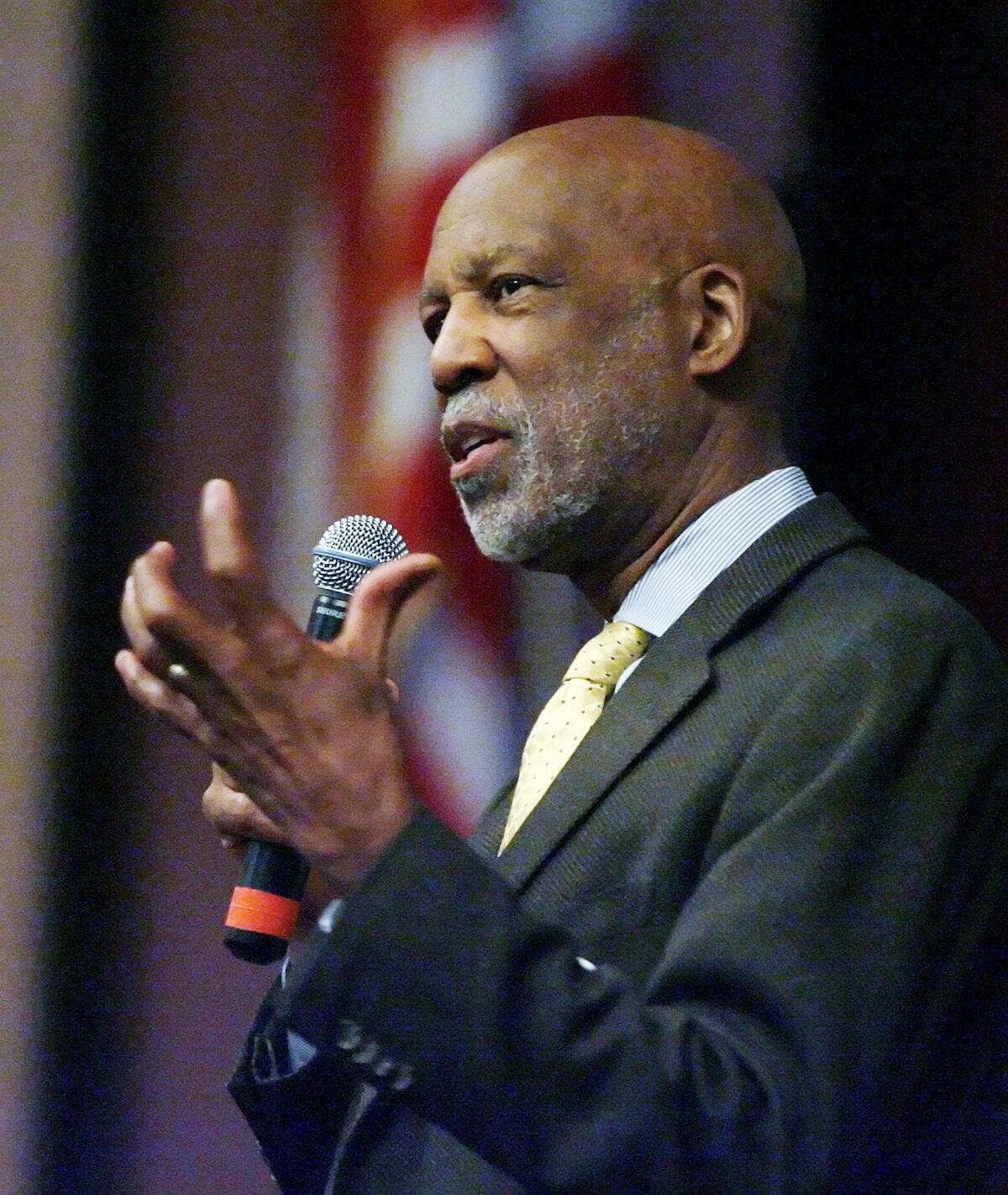Terrence Roberts, one of the ‘Little Rock Nine,’ visits Glendale Community College

- Share via
Terrence Roberts, one of the first nine black students who attended a previously all-white high school in Little Rock, Ark., in 1957, told a group of students at Glendale Community College on Wednesday that the daily beatings he experienced as one of the so-called Little Rock Nine suggests that attitudes run deeper than the justice system.
“Even though the law changed, nothing else did,” Roberts, a Pasadena resident, said to a packed house of about 240 people, mostly students. He was referring to the U.S. Supreme Court’s landmark Brown vs. Board of Education decision in 1954 that outlawed segregation in public schools.
Orval Faubus, governor of Arkansas when the ruling came down, brought in the state’s national guard in the name of “keeping the peace,” but employed them to prevent the black students from entering the high school. In response, President Dwight Eisenhower intervened and ordered U.S. troops to protect the students for the entire school year.
Decades later, Roberts said he still considers the United States largely “always separate, but never equal.”
Still, Roberts’ message was ultimately positive. He repeatedly said a strong sense of self is the best antidote to the world’s sometimes oppressive forces.
“As an individual, you alone have the authority to determine where you belong,” Roberts said. “Other people don’t have that right.”
He added, “What other people think of you is their business. You don’t have to get involved. If you do get involved, it’s for naught because you can’t change how people think.”
Ardashes “Ardy” Kassakhian, a political science instructor at the college, said he connected with Roberts after doing his own research three to four years ago related to a spate of officer-involved shootings of black men across the country.
“I realized that not only was there a civil rights icon still living, but one very close to home,” said Kassakhian, who organized the event. Kassakhian has also served as Glendale’s City Clerk since 2005.
Half of Roberts’ one-hour talk was dedicated to answering questions. Students clamored to ask questions, and sometimes disclosed their own brushes with discrimination, either personally or through a relative.
Teyvon Snell, 24, and a first-year student at Glendale Community College, said he could relate to the racism Roberts faced.
“As a black man in Los Angeles, I deal with that a lot,” Snell said. “So just to come here and be in his presence — and get advice on how to deal with racism myself — is an honor.”
When the Little Rock Nine became national news in the 1950s, Vivienne Daniels, 67, was just a little girl. A current Glendale Community College student who was at the talk, she said she learned more about the situation through history studies and admires Roberts for his resilience.
“He’s advanced in age and yet he gave something for all of us to think about going forward in our lives today,” Daniels said.
In 1958, Faubus shut down all public high schools in Arkansas in response to the desegregation mandate. Suddenly in need of a new place to study, Roberts ended up moving to Los Angeles, where some of his relatives lived.
Los Angeles High, where Roberts enrolled, “was probably the most desegregated high school in the city,” at that time, he said, adding that “white flight” had not yet taken place.
Even though the school reflected the diverse neighborhood, “racism [in Los Angeles] was just as rampant as it was in Little Rock — just manifested differently,” Roberts said.
